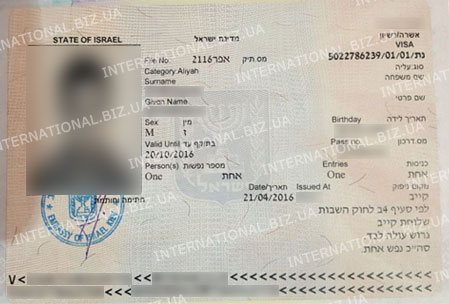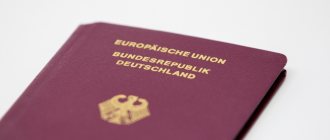Become an Israeli citizen quickly
Contact us
The Israeli Citizenship Law, adopted in 1950, regulates the conditions, procedure and methods for obtaining an Israeli passport. The basis for the simplified acquisition of Israeli citizenship is the Law of Return. Thanks to changes in legislation, a citizen of any state who has confirmed the right to repatriation can obtain an Israeli passport. By obtaining Israeli citizenship, government benefits and financial assistance become available for a successful start in life in a new country.
What is the essence of the concept
Literally, repatriation means returning to one’s homeland. The media often make mistakes when they use this term to refer to any type of return to the state, even illegal entry. In practice, repatriation has several meanings:
- Political. The process of acquiring citizenship that belonged to the ancestors, but was lost by them, including against their will. It can be implemented on the principle of national or territorial reference.
- Financial. In this case, funds placed abroad are returned back to the state.
- Diplomatic. The situation when foreign workers return to the country where they have permanent residence.
The term “repatriation” is most often used in a political sense and is the implementation of the right to return to the state of origin by its former citizen. A person who goes through this program is called a repatriate. During the procedure, he restores civil rights guaranteed by the laws of his historical homeland. Unlike naturalization, in most countries, repatriation does not require you to renounce your native citizenship.
What is the Law of Return
The Israeli parliament, the Knesset, adopted the Law of Return to Israel in 1950, allowing every representative of Jewish nationality to exercise the right of repatriation. Jews living in other countries were given the opportunity to return to their historical land and obtain Israeli citizenship. Together with the applicant, close family members without Jewish nationality up to the third generation, regardless of religion - spouse, children and grandchildren, can become Israeli citizens.
The law also provides for restrictions on the possibility of obtaining citizenship. Foreigners whose activities pose a threat and are directed against the interests of the Jewish people will be denied the right to repatriation by Israeli government authorities. A negative answer is given to foreigners who have violated the law in other states and wish to seek refuge on Israeli territory to avoid justice.
What changes have occurred in legislation?
It became possible to restore citizenship on the father's side
The reason for the revision of the original definition of the concept of “Jew” was the application of a Catholic monk of Jewish origin to obtain Israeli citizenship. In 1970, the first amendments were made to the Law of Return to Israel. In accordance with the changes, foreigners with Jewish origin and individuals who separately converted to Judaism are considered Jews who have not converted to another religion. At the same time, the innovation regulated the civil status of the spouses, children and grandchildren of a Jew, who automatically gained access to all the rights and benefits granted to every repatriate. In 1971, the Knesset passed an amendment to the law on repatriation to Israel, allowing Jews outside the Israeli state to obtain citizenship if they wish.
Repatriates receive darkon immediately upon arrival in Israel

In 2021, the Israeli Parliament approved changes to the Law on Foreign Passports. Now, applicants for Israeli citizenship upon repatriation immediately receive a foreign passport - darkon - without complying with the condition of mandatory residence in the country. The law is based on the principle of equality between all citizens of Israel. Previously, repatriates were given the opportunity to purchase an Israeli passport after 1 year of residence in the state. To obtain the document, you must contact the Israeli Ministry of Internal Affairs. The duration of the darkon depends on the repatriate’s consent or refusal to store fingerprints in the biometric database - 10 or 5 years.
What are the requirements for repatriates to the Russian Federation?
Despite the fact that the right to take part in the repatriation program is reserved for Russians at the legislative level, it is extremely important that the applicant meets all established requirements, namely:
- all documents certifying a person’s citizenship status were obtained on the territory of the former Soviet republics back in the days of the USSR;
- the citizen has various statements about baptism, birth, and attendance at a parochial school from the times of the Russian Empire or the USSR;
- it is necessary to prepare papers confirming the Russian origin of the person;
- the citizen previously served in military service within Russia, and he has documents confirming this;
- the person was deported and has papers for rehabilitation.
Of course, documents containing information about the nationality of the applicant are also required. That is, such papers must clearly state that the citizen is Russian. It should be noted that when submitting an application, a person must be of age, speak the national language and have a sought-after profession. A certificate of the candidate’s legal capacity is required.
Who has the right to repatriation
In accordance with religious canons, nationality in Israel is transmitted through the mother. Anyone who has a Jewish mother or grandmother in their family is a Jew. Many people mistakenly consider the presence of roots in the male line to be an insufficient basis for repatriation. According to the Law of Return to Israel, the right to obtain citizenship also applies to citizens without Jewish nationality:
Children of Jews in the male line
Spouses, children, grandchildren of Jews and their family members up to the third generation
Widows or widowers of all of the above who did not enter into marital relations with representatives of another nationality after the death of their Jewish spouse
It is not possible for minor children of the 4th generation to obtain Israeli citizenship. However, the state allows you to obtain insurance of various types and medical care, and attend kindergartens, schools and universities free of charge, on an equal basis with holders of Israeli citizenship. Minor children of the 4th generation are issued a personal internal passport number, which is equivalent to obtaining the status of a residence permit. After 3 years of residence in the state, an Israeli identity card and darkon are issued, which allows visa-free travel to more than 100 countries of the world.
Belonging to the Jewish people confirms
Certificates of birth, marriage/divorce, death of spouse
docs_3
Diplomas of education
Birth, marriage/divorce, death certificates of grandparents
Pension, labor, military and other documents
Internal and foreign passports
In obtaining Israeli citizenship by repatriation, the fact of religion is important. For representatives of Judaism, the chances of successfully obtaining an Israeli passport increase.
Obtaining a repatriate visa

Providing a positive response from the Israeli consul means receiving a repatriate visa in your foreign passport immediately after the interview. The permanent residence permit is valid for 6 months. You must cross the Israeli border within the specified time or you will have to reapply to the consulate to explain the reason for the expiration of your visa. A permanent residence permit is granted to every Jew who wishes to reside in Israel. A repatriate may be denied a visa in cases of non-compliance with the rules prescribed in the Law on Return.
What assistance does the Law of Return offer to Israel?
In accordance with the law, all repatriates in Israel receive assistance from the beginning of paperwork until full integration into Israeli society. A free air ticket is provided, the opportunity to take extra luggage with you and a transfer to your place of residence in Israel . Repatriates are provided with payment by the state of an “absorption basket” - a cash subsidy provided upon arrival at an Israeli airport. The main goal of non-repayable financial assistance is the successful settlement of new citizens in Israel. The amount of payments depends on the age of the repatriate, the number of family members and the presence of children.
The provision of the “absorption basket” is divided into 2 parts, one of which is issued upon arrival at the airport, the rest is paid throughout the year. To receive financial assistance, you must open a bank account in Israel within the first days of your stay in the state. Upon leaving the country, cash payments automatically stop. You can resume receiving benefits only during the first year of moving to Israel. The absorption basket also includes payments for rental housing. After the expiration of the initial assistance, the Ministry of Construction helps the repatriate for the next 4 years.
Regardless of age, all repatriates receive free medical insurance for 1 year. The validity period may be extended if the new Israeli citizen has not found a job within 6 months and the only income is from receiving an absorption basket.
Upon moving to Israel, repatriates can take advantage of ulpans - free Hebrew courses. In addition to learning the state language, during the classes the repatriate gets acquainted in detail with the culture, traditions, history and structure of Israeli society. By contacting the Ministry of Aliyah and Absorption within 36 months, the student is provided with assistance in obtaining an education in higher educational institutions and colleges in Israel. Payments are also provided for schoolchildren to cover the costs of textbooks and excursions.
Loyal taxation is one of the important advantages for repatriates. The first customs benefits are received upon entering the country. The action applies to the import of various locally produced goods from abroad. New Israeli citizens are provided with benefits when purchasing a car during the first 3 years from the date of repatriation. You only have to pay 50% tax and VAT. Income of repatriates received abroad is exempt from taxes. Income tax benefits on profits in Israel apply for 3.5 years. The legislation also provides for obtaining a loan - providing funds for the purchase of living space within 10 years from registration of repatriate status.
The adopted changes in legislation have significantly simplified the process of obtaining Israeli citizenship for foreigners and made the period of adaptation to the new society comfortable. To receive all the privileges of an Israeli passport, repatriates only need to confirm their connection with the Jewish people. International Business lawyers will collect the necessary package of documents and help you obtain Israeli citizenship.
How does repatriation work in Moscow?
Citizens of neighboring countries are repatriated according to the following scheme:
- Search for a person in the morgue through the accident bureau or a single ambulance help desk;
- Order from a local funeral agency a regular and zinc coffin, transport for transporting the body;
- Ordering double embalming from the morgue for a long period of time for storage and transportation and a certificate of this for air travel;
- Obtaining a death certificate from the morgue and a stamp certificate from the MFC.
- Obtaining a sanitary certificate permitting transportation from Rospotrebnadzor.
- Deregistration from the Migration Service;
- Placing the body in a coffin in the morgue and subsequent soldering of the zinc coffin and obtaining a Certificate of non-investment;
- Transportation of the body to the hometown to the morgue or burial site; or transportation to an airport for delivery to another country;
- If the body is to be transported by plane, it must be brought to the airport at least 6 hours in advance;
- The application for customs is written in free form by the accompanying person.
- Duty for cargo 200 is not charged at customs;
- An accompanying person flies with the body and must purchase a ticket in advance.
For citizens of neighboring countries, the following is added to the repatriation scheme:
- Contacting the consulate of the deceased’s home country;
- Translation of documents into the language of the recipient country;
- Ordering a visa for the driver of a vehicle if the body is delivered by land.
Transit transportation of dead bodies over long distances
The documents that need to be collected are the same as for transporting the bodies of citizens from near and far abroad. However, other costs are added here.
There are cases when Moscow becomes a connecting city for further air transportation of a body to another country. And a plane with a body can arrive in Moscow at one airport, and the flight to the destination country will be from another airport.
Then a hearse transport is required to deliver the body in a zinc coffin (load 200) to the right place. For such a procedure, if relatives cannot come, an accompanying person is needed. Hearse transport for the body and accompanying person is ordered from the funeral agency. The agent also helps with customs paperwork.









